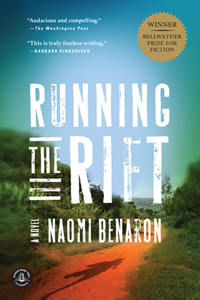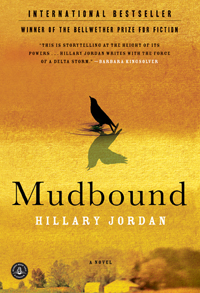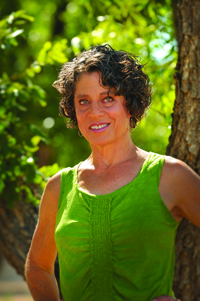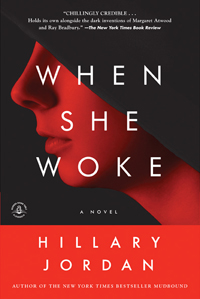Arguably one of only a handful of household names in American literary fiction, Barbara Kingsolver has long been beloved for her many New York Times bestsellers, including The Poisonwood Bible. In the past decade, she’s grown equally prominent as an environmentalist: she’s a passionate advocate for ending mountaintop-removal mining; her memoir, Animal, Vegetable, Miracle, became a galvanizing text for the local-food movement; and her new novel, Flight Behavior, considers the imminent danger of climate change. But Kingsolver has made another contribution that’s equally influential, if less celebrated or trendsetting, to American culture: in 1999, she founded the Bellwether Prize, an award to be given biennially to an unpublished debut novel that addresses matters of social justice and responsibility.
 Carrying a $25,000 prize—funded entirely by Kingsolver herself—and a publishing contract, the Bellwether is distinguished as the largest monetary prize for a single fiction manuscript in North America, “designed to be a career-founding event for writers with outstanding literary skills, moral passion, and the courage to combine these strengths in unusually powerful fiction,” as Kingsolver’s website puts it.
Carrying a $25,000 prize—funded entirely by Kingsolver herself—and a publishing contract, the Bellwether is distinguished as the largest monetary prize for a single fiction manuscript in North America, “designed to be a career-founding event for writers with outstanding literary skills, moral passion, and the courage to combine these strengths in unusually powerful fiction,” as Kingsolver’s website puts it.
Manuscript entries, judged blind, are read by a rotating panel of luminaries in American letters whose work tackles social change in ways similar to that of the Bellwether winners: Toni Morrison, Ursula K. LeGuin, and Barry Lopez, among others. So far seven writers have won the prize, now officially known as the PEN/Bellwether Prize for Socially Engaged Fiction and administered by the PEN American Center. The most recent is Susan Nussbaum, who won for Good Kings Bad Kings.
On November 29, Nashville’s Parnassus Books will welcome Hillary Jordan and Naomi Benaron, two Bellwether winners. Benaron’s Running the Rift, which took the prize in 2010, tells the story of Jean Patrick Nkuba, a young Rwandan Tutsi sprinter who pursues his dream of representing Rwanda in the Olympics just as ethnic tension in his homeland escalates with horrifying consequences. Running the Rift “conveys the impossibility of remaining neutral within a climate of broad moral compromise—even for purportedly apolitical institutions like the Olympics,” Kingsolver has said.
Jordan received the Bellwether in 2006 for her debut novel, Mudbound, praised by Publishers Weekly as a “beautiful debut” and “superbly rendered depiction of the fury and terror wrought by racism.” The novel tells of two families struggling to live, and live with one another, on a hardscrabble farm in the Mississippi Delta at the end of World War II. Two veterans—one the son of the white farm owner, the other the son of black sharecroppers who live on the land—are among the voices that acutely bring to light the tragedies of this world as the young soldiers struggle to reconcile a return to the Jim Crow South with their life-altering experiences abroad.
 Jordan’s second novel, When She Woke, tells a story no less courageous in its tackling of tough sociocultural themes. Set in the near future, the novel offers a modern spin on Hawthorne’s The Scarlet Letter: for having an abortion, its protagonist, Hannah Payne, has been found guilty of murder. Hannah’s punishment is to be “melachromed,” her skin tinted a color that announces her type of crime.
Jordan’s second novel, When She Woke, tells a story no less courageous in its tackling of tough sociocultural themes. Set in the near future, the novel offers a modern spin on Hawthorne’s The Scarlet Letter: for having an abortion, its protagonist, Hannah Payne, has been found guilty of murder. Hannah’s punishment is to be “melachromed,” her skin tinted a color that announces her type of crime.
Prior to their appearance at Parnassus, Benaron and Jordan answered questions from Chapter 16 via email.
Chapter 16: In what ways has winning the Bellwether Prize affected your book’s reach, from the nature of its audience to the impact of its message?
Jordan: Barbara Kingsolver has legions of avid fans, and many of them no doubt read Mudbound because of her imprimatur and her wonderful blurb. I also think the prize made educators and librarians take notice, with the result that the book has been taught in a number of high schools and colleges. This, for me, is the highest honor my work can receive. The first time a teacher wrote to tell me she was teaching Mudbound to her eleventh grade English class, I burst into tears.
Benaron: The Bellwether Prize is, I think, a stamp of approval. Especially as this stamp comes from Barbara Kingsolver, I think that readers who may not otherwise pick up a book about a subject as difficult as genocide in a place such as Rwanda, which has been and continues to be overlooked, will give the work a chance. Once readers approach our books with an open mind, the stories, I think, will speak for themselves. I have had emails from so many people who, after reading Running the Rift, have gone on to research the subject more or have asked for suggestions as to what they can do to help.
Chapter 16: Has winning the Bellwether Prize affected your subsequent writing in any identifiable way?
 Jordan: Definitely. I didn’t start out thinking of myself as a political writer, but after winning the prize, I embraced that aspect of my work.
Jordan: Definitely. I didn’t start out thinking of myself as a political writer, but after winning the prize, I embraced that aspect of my work.
Benaron: In terms of subject matter, no, but it has given me a sense of validation for those subjects. Consequently, I approach my writing with more confidence that my work will reach a large audience.
Chapter 16: Can you tell us a little bit about your research process in writing these books? What did you uncover or experience that most deeply affected you or surprised you?
Jordan: I was about 200 pages into the book—which at that point was more of a domestic drama about the love triangle between Laura, Jamie, and Henry—when I saw a PBS documentary called “The African-American Experience.” One of the segments was on the Negro Army in WWII, and in particular a tanker unit called the Black Panthers. I had of course known that the army was segregated back then, but I’d never thought through the implications of that, and I had no idea of the horrific treatment black soldiers were subjected to by their white superiors and brothers-in-arms. I was galvanized by what I learned (for example, that white and black troops had different blood supplies). And I decided right then that Hap and Florence had a son who was a Black Panther. And so the character of Ronsel was born, and once he started speaking, he changed the book profoundly. That’s really when Mudbound became a novel of social justice.
Benaron: My research process took me on four extended trips to Rwanda. I met many people who became close friends and who shared with me their stories, their knowledge, and their homes. For this, I am very grateful. When I started this project, I knew nothing about Rwandan culture, about its language and mythology. My life is so much richer for having the doors and windows to this rich place thrown wide open. Rwanda is a huge part of my life in so many ways now, and I know I will keep returning there. I have an unofficially adopted son from Rwanda now, and in 2010, two months after winning the Bellwether, I went to Rwanda to celebrate his wedding. It gave me such a sense of accomplishment and fulfillment to go back for a joyful celebration after so many trips dealing with stories of horrific pain and suffering. It was an affirmation of the incredible spirit of the Rwandese people, to come out of the ashes of genocide and look with hope to the future.
 Chapter 16: Did you have the Bellwether Prize in mind when you began writing the work that ultimately received it? What circumstances prompted you to toss your hat into the ring?
Chapter 16: Did you have the Bellwether Prize in mind when you began writing the work that ultimately received it? What circumstances prompted you to toss your hat into the ring?
Jordan: Certainly not! I’d just finished the second draft when I stumbled across the Bellwether in an online listing of prizes for fiction writers—I was searching high and low at that point for money to keep writing. I read the description and thought, Yeah, I guess Mudbound kind of fits the bill; it’s about racism. I sent in the manuscript with a check for thirty dollars, thinking, There goes thirty bucks.
Benaron: I definitely did. My fiction teacher at the community college where I took courses after jumping off the writing cliff told me about the Bellwether. She said she thought my writing was particularly suited to submit. I am like a bulldog, like my main character, Jean Patrick. When I heard about it, I knew I wanted to win really, really badly. It took me two tries (I was a finalist in 2008), but I did it.
Chapter 16: Contemporary beginning fiction writers are often cautioned against didacticism, which can make it tricky to write a book that deals with matters of social injustice. How did you overcome this problem?
Jordan: By taking myself out of it—meaning my views on race and feminism and war. Which took me many, many drafts to achieve! But I hate being preached to, and I figured my readers would too. I tried very hard to portray things as they were then, without letting judgment creep in or imposing my modern sensibilities on my characters, and to let the issues come out organically through their thoughts and actions.
Benaron: It’s all about the story. I never said, “I want to write a story that teaches about social injustice, about the consequences of “othering.” I set out to tell a story about real people, to build a world in which that process of othering has unspeakable consequences for those characters. By living inside the fictive dream, the reader will experience the “message” through the characters’ eyes rather than be hit over the head with it.
 Chapter 16: There are more avenues than ever for making a compelling case for a cause. How does contemporary fiction ultimately function in that process? How do you feel about the general health of socially engaged fiction in our culture?
Chapter 16: There are more avenues than ever for making a compelling case for a cause. How does contemporary fiction ultimately function in that process? How do you feel about the general health of socially engaged fiction in our culture?
Jordan: As Barbara has pointed out, fiction is the only art form that puts you into the mind of another human being. Film, dance, visual art—none of them can do that, nor can journalism. But with fiction, you are literally inside someone else’s head, their experience, their thoughts. And I think that’s why it’s so effective in promoting change—because that sort of intimate knowledge of another person is the enemy of suspicion and hatred, of thinking them as “the other.” I think the socially engaged novel is alive and well, despite the resistance some people have to the idea of it. After all, it’s the job of literature to tackle the really big, thorny issues of our time. I can’t think of a single book I’d call great that doesn’t do that.
Benaron: This is a great question, and my feelings are mixed. When I look at The New York Times bestseller list and see at the top certain vapid, poorly written books, I get discouraged. But then I see that important works are also on that list, and this gives me hope. I believe that the role of fiction in increasing the American people’s awareness is essential. When She Woke is a prime example. Even if readers disagree, at least they are discussing the issues in book clubs, in high school and university classes, in panel sessions at book fairs. The discussion is what is important, and there’s nothing like a good book—an important book—to open eyes and get discussion going.
Chapter 16: Aside from your fellow Bellwether Prize-winners, are there other works of contemporary fiction dealing with social change that you think our readers should seek out?
Jordan: A Hundred and One Nights by Benjamin Buchholz, Flight Behavior by Barbara Kingsolver, The Gods of Heavenly Punishment, by Jennifer Cody Epstein (coming spring 2013).
Benaron: In the Shadow of the Banyon by Vaddey Ratneer, Never Fall Down by Patricia McCormick, Displaced Persons by Ghita Schwarz, Girl Child by Tupelo Hassman, Women Without Men by Shahrnush Parsipur, The Yellow Birds by Kevin Powers, Half of a Yellow Sun by Chimamanda Ngozi Adichie.
Susannah Felts will interview Naomi Benaron and Hillary Jordan live at Parnassus Books in Nashville on November 29 at 6:30 pm. The event is free and open to the public.
Tagged: Fiction





